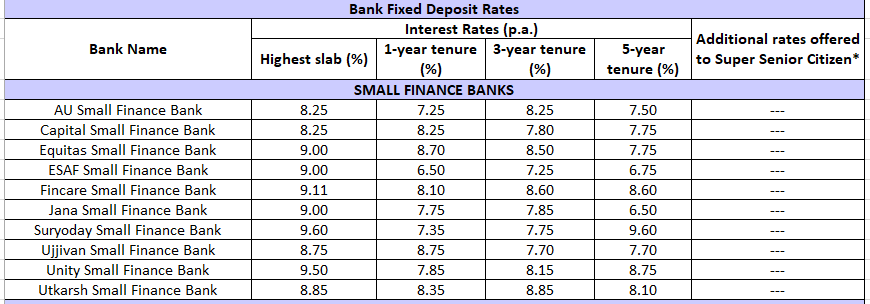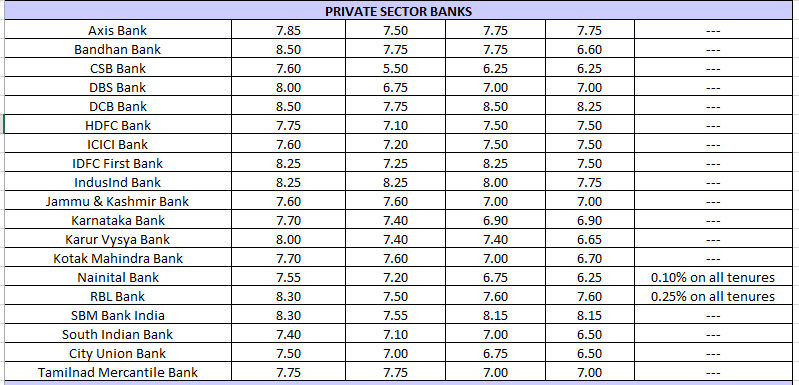FD Interest Rates: Banks compete with each other to attract deposits, so they may offer higher FD interest rates in order to attract customers.
Fixed deposit interest rates in India are impacted by a number of factors, including the repo rate, inflation rate, competition among banks, and the risk profile of the bank. FD is a popular investment option offered by banks and financial institutions. It is a type of deposit account where an individual can invest a specific sum of money for a predetermined period, typically ranging from a few months to several years.
FD Interest Rates for Senior Citizens
Read More: Home Loan Rates Of SBI, PNB, Axis And Other Banks; Find Lowest Rate Here
Fixed deposit (FD) rates are typically higher for senior citizens due to government initiatives, the stable customer base they represent, their reliance on fixed income, and their lower risk profile. These factors contribute to the higher interest rates offered to senior citizens, providing them with an opportunity to earn additional income and meet their financial needs while ensuring stability and security in their investments.
FD Interest Rates for Senior Citizens As On June 14 In Different Banks



Fixed deposit (FD) interest rates in India are impacted by a number of factors, including:
Repo rate: The repo rate is the rate at which the Reserve Bank of India (RBI) lends money to commercial banks. When the repo rate is increased, banks typically increase their lending rates, which can lead to lower FD interest rates.
Read More: Soon NPS To Have Systematic Withdrawal Plan; Here’s What PFRDA Chairman Said
Inflation: When inflation is high, banks may increase their FD interest rates in order to attract more deposits. This is because higher inflation can erode the value of money over time, so banks need to offer higher interest rates in order to make their deposits more attractive.
Competition among banks: Banks compete with each other to attract deposits, so they may offer higher FD interest rates in order to attract customers.
Risk profile of the bank: Banks that are perceived to be riskier may offer lower FD interest rates in order to compensate investors for the additional risk.
The deposited amount earns a fixed rate of interest, which is determined at the time of opening the FD and remains constant throughout the tenure. The interest can be compounded quarterly, half-yearly, or annually, depending on the bank’s policies.
At the end of the maturity period, the depositor receives the principal amount along with the accrued interest. Fixed deposits in India are considered low-risk investments and are commonly chosen for their stable returns and capital preservation.
Read More: PNB Housing Finance To Raise Rs 5,000 Cr Funds Via Non-Convertible Debentures
However, recent developments regarding the withdrawal of Rs 2000 notes have sparked discussions about the potential impact on FD interest rates. Experts suggest that the financial sector’s liquidity surplus could lead to a drop in interest rates, with various macroeconomic factors indicating a peak in the current cycle of interest rate hikes.





































